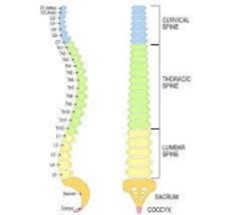A client with Alzheimer's is having increased behavioral issues that have become a safety concern for the client and others. Which of the following medications will the nurse discuss with the physician for inclusion in the client's care plan?
Sedatives
Antipsychotics
Cholinesterase inhibitors
Serotonin Reuptake inhibitors
The Correct Answer is B
Choice A Rationale: Sedatives may not be the first choice for managing behavioral issues in clients with Alzheimer's disease, as they can increase confusion and fall risk.
Choice B Rationale: Antipsychotics may be considered in cases where behavioral issues pose a safety concern. They can help manage agitation, aggression, and other challenging behaviors.
Choice C Rationale: Cholinesterase inhibitors are used to treat cognitive symptoms of Alzheimer's disease but may not directly address behavioral issues.
Choice D Rationale: Serotonin reuptake inhibitors are typically used to manage mood disorders and may not be the first-line choice for behavioral issues in Alzheimer's disease.
Nursing Test Bank
Naxlex Comprehensive Predictor Exams
Related Questions
Correct Answer is ["A","B","D"]
Explanation
Choice A Rationale: A weakened gag reflex is a potential complication of a cervical spinal cord injury and can lead to difficulties in swallowing and increased risk of aspiration.
Choice B Rationale: Hyperthermia can occur as a result of autonomic dysfunction associated with spinal cord injuries, especially when the injury is at a high cervical level.
Choice C Rationale: Absence of bowel sounds is not typically associated with cervical spinal cord injuries but may be seen in lower spinal cord injuries.
Choice D Rationale: Hypotension is a potential complication due to impaired autonomic regulation in cervical spinal cord injuries.
Choice E Rationale: Polyuria is not typically associated with cervical spinal cord injuries but may occur in cases of lower spinal cord injuries affecting bladder function.
Correct Answer is C
Explanation
Choice A Rationale: Quadriplegia is a type of paralysis that affects all four limbs and the trunk, usually caused by an injury to the cervical spine (C1-C8).
Choice B Rationale: Incomplete loss of function refers to the extent of injury and whether some neurological function remains, not the level of injury.
Choice C Rationale: CA injury refers to cervical spine injury, which is the most common level of spinal cord injury.
Choice D Rationale: Hyperextension, like other mechanisms of injury (such as compression, flexion, or flexion-rotation), can contribute to spinal cord injury but does not define the level of injury.

Whether you are a student looking to ace your exams or a practicing nurse seeking to enhance your expertise , our nursing education contents will empower you with the confidence and competence to make a difference in the lives of patients and become a respected leader in the healthcare field.
Visit Naxlex, invest in your future and unlock endless possibilities with our unparalleled nursing education contents today
Report Wrong Answer on the Current Question
Do you disagree with the answer? If yes, what is your expected answer? Explain.
Kindly be descriptive with the issue you are facing.
